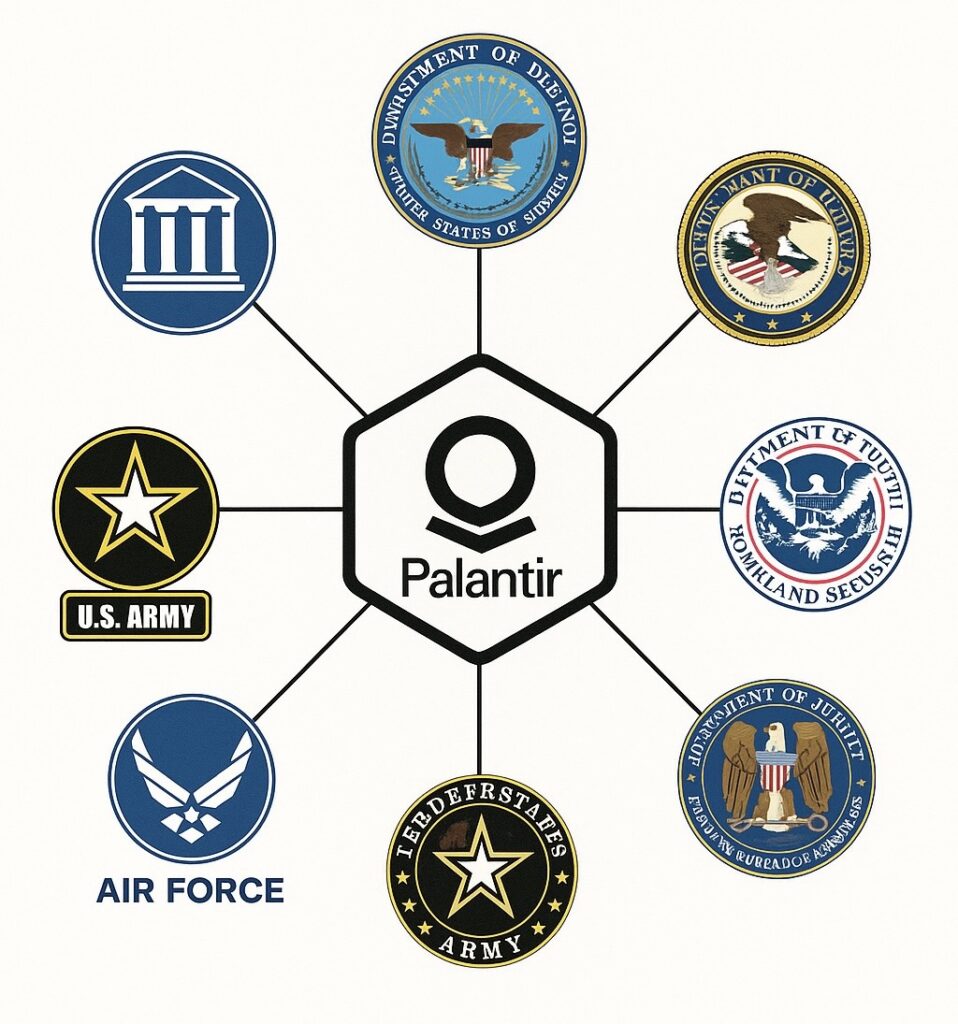“The great danger of the digital age is that those who control data will control everything else.”
– Shoshana Zuboff (author of The Age of Surveillance Capitalism)
The Architecture of Peter Thiel’s Empire
Peter Thiel is more than a Silicon Valley billionaire—he’s an architect of modern digital infrastructure. His empire stretches from fintech innovations like PayPal to powerful data analytics systems such as Palantir Technologies. By combining venture capital investments, strategic government contracts, and an ideology rooted in disruption, Thiel has built a network that influences not only tech but also national security and global politics. His early investments in Facebook gave him unique leverage over social media’s evolution, while his company Founders Fund continues to finance defense-tech startups, positioning him as a quiet force shaping the future.
Palantir: The Core of Data-Driven Surveillance
Palantir Technologies, co-founded by Thiel in 2003, is the heart of his empire. Known for its powerful data integration and surveillance tools, Palantir is deeply embedded within the U.S. government, serving agencies like the Department of Defense, the FBI, the NSA, and Immigration and Customs Enforcement (ICE). Palantir’s Gotham platform, used for intelligence and law enforcement, has been described as the “operating system for data surveillance.” Its deep ties to In-Q-Tel (the CIA’s venture capital arm) highlight how Palantir sits at the crossroads of private tech and national security.

The PayPal Mafia and the Digital Economy
PayPal wasn’t just Thiel’s first major success—it spawned the “PayPal Mafia,” a group of entrepreneurs who went on to create companies like Tesla, LinkedIn, and YouTube. This network gave Thiel unparalleled access to capital, influence, and cutting-edge talent. Selling PayPal to eBay for $1.5 billion in 2002 gave Thiel the resources to pursue projects with greater geopolitical weight, including his early stake in Facebook. His fintech background continues to shape his perspective on how digital payment systems and cryptocurrencies can alter global financial power.
Founders Fund: Venture Capital with a Vision
Founded in 2005, Founders Fund is more than a venture capital firm—it’s an extension of Thiel’s worldview. The fund invests heavily in companies that align with his philosophy of technological acceleration and state independence. Notable investments include SpaceX, Palantir, Anduril (a defense-tech startup), and Stripe. By funding companies that intersect with national defense, AI, and emerging infrastructure, Thiel strategically positions himself to influence industries that define the future of governance and warfare.
Thiel’s Political and Ideological Footprint
Thiel’s empire isn’t just financial—it’s ideological. A self-described contrarian, he’s been vocal about his skepticism toward democracy, famously writing that he no longer believes freedom and democracy are compatible. His backing of political figures like J.D. Vance and his involvement in policy-shaping organizations demonstrate his willingness to embed his tech-driven vision into national governance. Thiel’s support for Project 2025 and similar conservative initiatives showcases how his influence extends beyond Silicon Valley into the political machinery of the U.S.
Philosophy Meets Technology
Thiel’s worldview is informed by philosophers like Leo Strauss and authors like René Girard. His focus on “creative monopolies” and disruptive innovation has shaped the way he builds and invests in companies. He sees technology not just as a business tool but as a mechanism for reshaping power structures. Palantir’s predictive analytics and AI-driven systems reflect this belief, providing tools that centralize decision-making and data control—often in ways the public doesn’t fully understand.
Why This Matters Now
Peter Thiel’s digital empire raises critical questions about who controls the flow of information in a digital age. As Palantir deepens its ties with government and military operations, the boundary between private corporations and state power becomes increasingly blurred. With influence spanning tech, surveillance, finance, and politics, Thiel represents a new breed of power broker—one who operates behind the scenes, where data is the ultimate weapon.

Leave a Reply